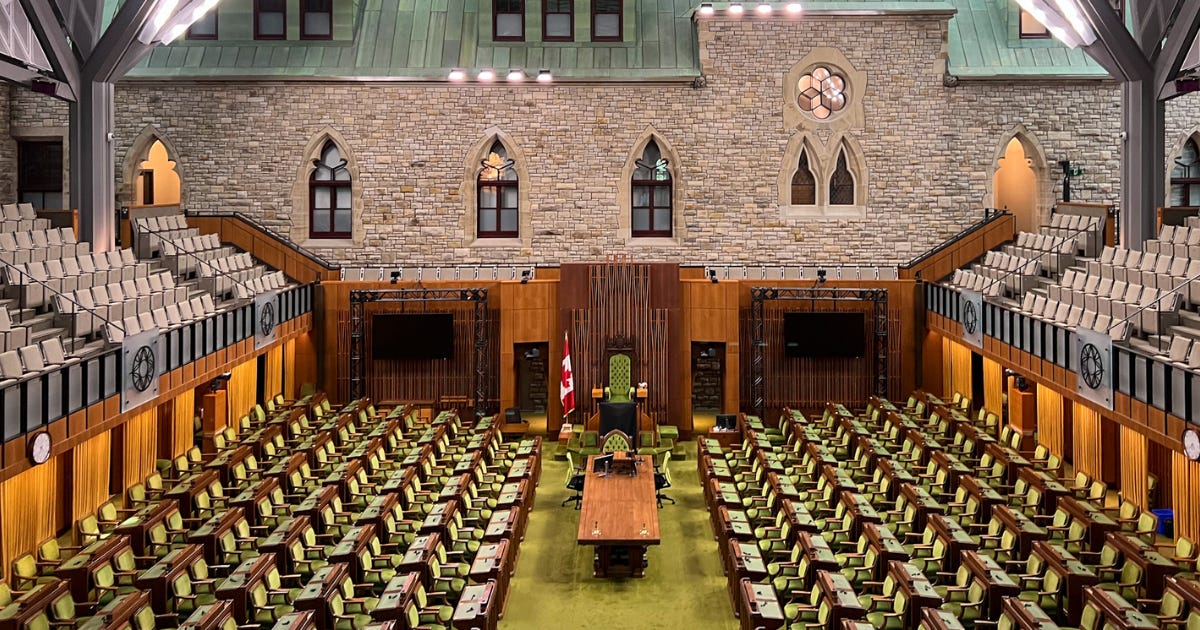Critics warn Bill C-8 hands Ottawa sweeping surveillance powers
MPs, senators and privacy experts are all warning that the Liberal government’s latest cybersecurity bill risks undermining privacy and accountability while handing Ottawa invasive new powers.
MPs, senators and privacy experts are all warning that the Liberal government’s latest cybersecurity bill risks undermining privacy and accountability while handing Ottawa invasive new powers.
Bill C-8, introduced to the House of Commons on June 18, is currently before Parliament for its second reading. The Liberals claim the bill proposes changes to the Telecommunications Act to promote the “security of the Canadian telecommunications system,” but opponents argue that the bill goes far beyond that.
For example, Conservative MP Matt Strauss highlighted three different sections of the bill in a post to X.
“It allows Melanie Joly to kick anyone off the internet with no trial, no warrant. Worse, you won’t be allowed to say you’ve been kicked off,” he said. “This is the Emergency Measures Act on steroids, only permanent and secret.”
Section 15.2 (1) of one of the Bill’s parts enables the minister to “prohibit a telecommunications service provider from providing any service to any specific person, including a telecommunications service provider.”
The justification for doing so includes “any reasonable grounds to believe it is necessary to do so to secure the Canadian telecommunications system against any threat, including that of interference, manipulation, disruption, or degradation.”
As for the secrecy aspect, a portion of the Bill reads that “the order may also include a provision prohibiting the disclosure of its existence, or some or all of its contents, by any person.”
The Bill was tabled for its second reading in the House of Commons on Friday. The proposed amendments would create a new Critical Cyber Systems Protection Act, forcing federally regulated sectors like banking, energy, and transportation to follow mandatory cybersecurity standards.
During Friday’s debate, Public Safety Minister Gary Anandasangaree—who sponsored the Bill—said cyber incidents have dire effects.
“Successful cyber-incidents have severe, lasting and alarming consequences for every entity impacted, but most of all for the economic and mental well-being of individuals whose lives are disrupted and whose data is compromised,” Anandasangaree said.
Senator Denise Batters, who served as critic when the bill’s predecessor, Bill C-26, reached the Senate, warned about its scope in December 2024.
“Almost all of the witnesses who testified expressed significant concerns with Bill C-26, particularly regarding serious gaps in the protection of Canadians’ personal information under this legislation,” said Batters. “Common requests for amendments coalesced around a few major themes, including the need for increased transparency, oversight, and accountability.”
She added that the bill gave the government “a lot of power” and that the job of senators was to ensure that the Constitution was upheld and not infringed by government overreach.
“Canadians have a right to privacy and a right to be free from unreasonable search and seizure. I am not convinced that those rights are adequately protected under the version of the bill we have before us today,” she said. “I will therefore vote against this bill. Honourable senators, I encourage all of you to do the same.”
Batters took shots at the Liberal government, which was under former prime minister Justin Trudeau’s rule at the time.
“Just another day dodging accountability for the Trudeau government. Bill C-26 contains provisions allowing for the seizure of information without warrant. Both the Privacy Commissioner and the Intelligence Commissioner, among other witnesses, testified that such seizures may well contravene the charter and would be vulnerable to challenge in the courts,” she said.
Conservative MP Marilyn Gladu pressed Anadasangaree directly on the issue during Friday’s debate.
“Senator Denise Batters was the critic for the file, and the Privacy Commissioner said that there was an amendment needed to address privacy. The senator has reviewed Bill C-8 and said that the amendment was not incorporated. Why did the minister not take the advice of the Privacy Commissioner?” Gladu asked.
Bloc Québécois MP Claude DeBellefeuille similarly claimed that the proposed amendments for Bill C-26 were rejected or ignored.
Concerns about accountability were also raised in a 2022 joint letter from academics, policy experts, and civil liberties advocates regarding Bill C-26, the earlier version of the legislation. Some of the signatories included the Canadian Civil Liberties Association, the Canadian Constitution Foundation, and individual law experts.
“As drafted, it risks undermining our privacy rights, and the principles of accountable governance and judicial due process, which are the fabric of Canadian democracy. The legislation needs to be substantively amended to ensure it delivers effective cybersecurity protections while safeguarding these essential democratic principles,” read the letter.





It's the over-riding theme now with the Liberals.
Just look at what they have done or are about to do.
Everything... EVERYTHING seems to be designed intentionally to undermine Canada while also making our supposed Charter or Rights and Freedoms an even more worthless document then it already is.
Kind of sounds like Communism, doesn't it???? We in Alberta need to rid ourselves of this nonsense. Just another reason to Separate!